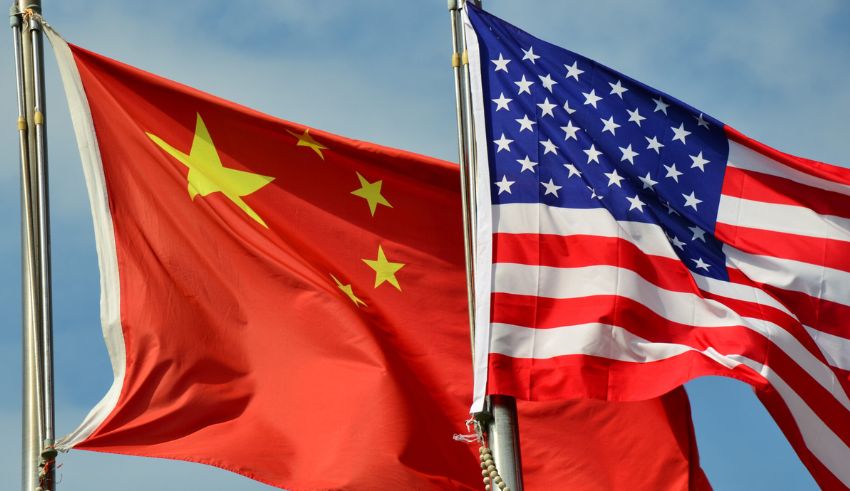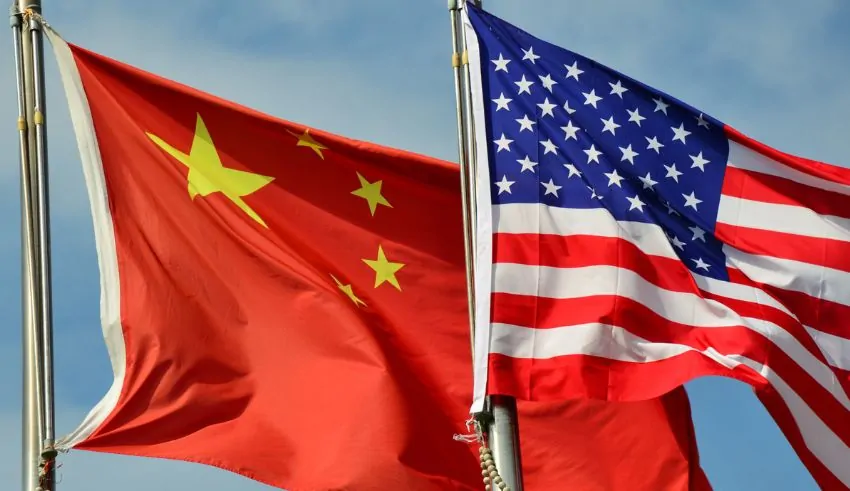

(C) Google
As the United States negotiates a close and divided presidential battle, Chinese official media has launched a huge campaign to highlight the turmoil growing in its democratic foe. Reports underlining the possibility of social disruption, political deadlock, and major societal divides allow Chinese media to show democracy as a defective and failing system using the US election. Beijing’s long-standing strategy to highlight what it feels to be flaws in liberal democracies is continuing here, juxtaposing these issues with the stability of China’s one-party government under President Xi Jinping, who has assured power eternally.
Chinese newspapers operated by states are benefiting from the acrimonious nature of the US election. From news headlines to social media analysis, the persistent theme is American democracy is collapsing under the weight of division. The nationalist daily Global Times boldly titled, “US Election Day Voting Begins Amid Fears of Violence, Unrest.” Reports from official broadcaster CCTV have underlined the great security measures taken in Washington, DC, showing boarded-up stores, more police presence, and fences around the White House and Capitol Hill, so framing these events as preparations for “the worst-case scenario of chaos.”
Such media highlights a picture of a superpower on the brink, a country whose political system people no longer feel could bring stability. State commentary even describes the US election as a spectacle of chaos rather than a democratic process, implying that it would spark “social unrest” rather than guarantee a tranquil shift of power. Beijing wants to show American democracy as a system prone to anarchy and dysfunction, mirroring a larger narrative strategy, countering Washington’s complaints of China’s governing style.
Debates on American politics abound on Chinese social media while the US election proceeds on platforms like Weibo. Many people have engaged with the spectacle of the election, generally in a cynical or detached manner. “The country is so divided, they could as well break into US-A and US-B,” a viral joke making the rounds indicates, implying that the United States has become virtually irreversibly damaged.
The common attitude on Chinese social media is one of subdued observation. Few think that a change in US leadership would lead to any appreciable improvement in relations with China. For many Chinese netizens, therefore, the outcome of the US election is seen as little more than a topic of interest than an event with major repercussions. “To us ordinary Chinese people, whoever becomes the US president, whether it’s candidate A or candidate B, it is all the same,” Beijing resident Li Shuo said in an interview with CNN. This mindset perfectly expresses the growing suspicion among the Chinese people of the US altering its policies toward China independent of the leader.
This general indifference for the specific outcome is not unfounded. The last two US administrations have embraced even more negative opinions of China. Under former President Donald Trump, the US approved a strong approach on COVID-19, which started in China, placed levies on billions of dollars’ worth of Chinese goods, and sanctioned Chinese telecom giant Huawei. Regularly presenting China as an ideological and financial rival to be balanced on multiple fronts, the Trump administration represented China as such.
While President Joe Biden has taken a more subdued approach, the actual policies have hardly altered at all. Biden has continued with tariffs, more export restrictions targeted at China’s technology capacity, and policies meant to limit China’s impact on the world scene. Tensions have only been more intense as the Biden government supports Taiwan, a self-governing island claimed by Beijing. For China, Taiwan acts as a “red line,” hence any US respect of its sovereignty is perceived as a direct threat. Beijing has strongly protested the comments and actions of the Biden government on Taiwan, therefore bolstering the assumption that the US will follow policies opposing China’s growth independent of the candidate.
Chinese official opinion confirms the alleged shortcomings in American democracy by showing the current US political cycle. Once thought of as the shining example of the so-called “beacon of democracy,” the Beijing Daily published a biting editorial piece saying that “the US election may now become the starting gun of social unrest.” This portrayal conforms to China’s bigger media goal, which has traditionally underlined incidents of political unrest in Western democracies to justify China’s government approach.
China’s one-party system, which gives centralized control and stability top priority, is clearly more fitted to handle the complexities of governance. Beijing seeks to defend its own political model by underlining the party gridlock and civil unrest in the US, therefore casting doubt on the feasibility of Western democratic norms for keeping order and growth. Locally in recent years, this message has found a receptive audience as state media combine fundamental values in China’s political narrative—political stability—with economic growth and social harmony, therefore binding them together.
From Chinese officials to regular people, a consensus seems to be developing: Washington’s posture to China is unlikely to change substantially depending on the result of the US election. Everyone agrees that the US will keep carrying policies aimed to limit China’s global expansion since it sees China as a strategic adversary. One wrote on Weibo saying, “Their containment of China won’t ease.” This point of view reflects China’s long-held belief—that the US seeks to lessen China’s influence—a conviction that penetrates public thought as well as official government statements.
Often accentuating America’s alleged social and political flaws in order to generate national pride in China’s own achievements, Chinese government media has become more hostile in shaping domestic perceptions of the US in recent years. By juxtaposing images of stability and progress in China with stories of chaos and dysfunction in the West, state channels try to foster the belief that China’s type of government is preferable. The Chinese people, who view American politics with mistrust and China’s development as inevitable as tensions with the US continue, have particularly connected with this discourse.
While the result of the US election is yet unknown, US-China relations’ path is clearly shown. Whichever the outcomes, it is usually expected that the US will keep applying policies meant to limit China’s dominance in many fields, including trade and technology. Chinese society sees this: it expects a long period of strife rather than peace.
China’s state media is not just covering a foreign event but also developing a bigger story using the US election to highlight the flaws of American democracy. By showing the US as a nation divided and on the brink of instability, Chinese media seeks to confirm home support for its own political system, therefore encouraging the view that centralized, authoritarian government is the best approach to guarantee stability and prosperity. Beijing’s rivalry with the United States is creating the foundation for a new age marked by military and economic competitiveness as well as an ideological conflict over the course of governance itself.
BLACKPINK is planning their fourth concert tour across the globe and their brand-new album for release in 2025. Member Lisa…
The 2024-2025 BOC Life Hong Kong Premier League is a different league which is structured with triple-round robin competition every…
On May 5th the 2025 Met Gala will glitter the world through its return to The Metropolitan Museum of Art…
‘Children’s Day’ is celebrated annually on 5 May in South Korea, on this day across the nation many campaigns, creative…
May is one of the crucial financial months in a year, if you have any important transactions or any official…
If you happen to breathe K-drama, then your 'May 2025' will most likely be well-rendered into a month! Romantic sagas,…
This website uses cookies.
Read More